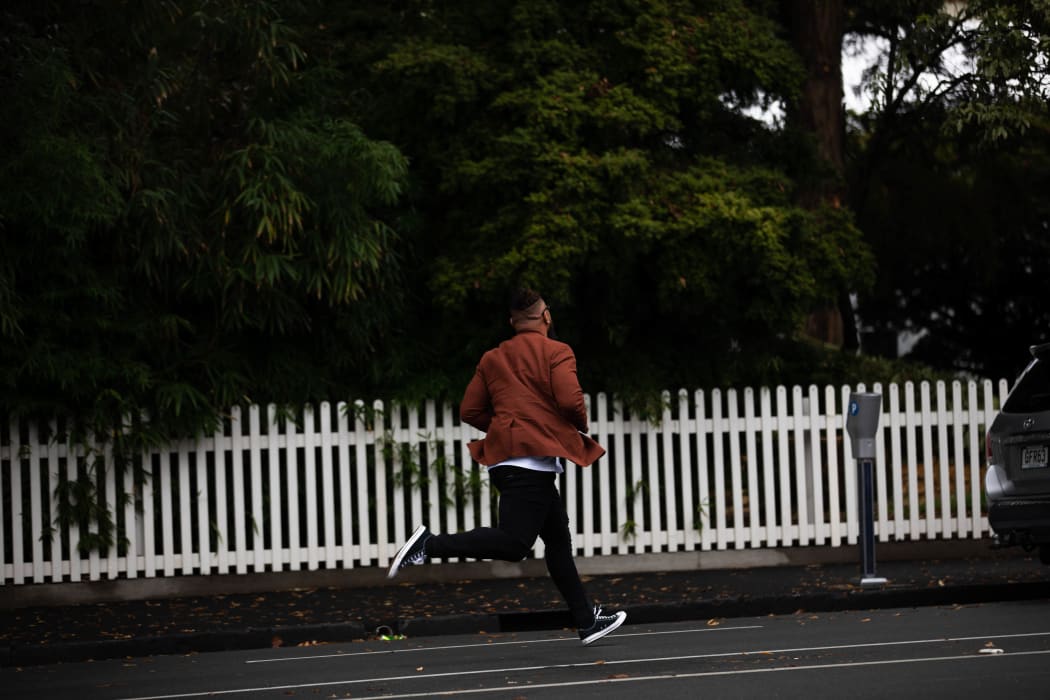
Photo: RNZ / Simon Rogers
Manu Vatuvei was one of rugby league’s biggest stars, but last week he was jailed for importing methamphetamine in what was a dramatic fall from grace. The Detail looks at what led Vatuvei down this path and the struggles many athletes face in transitioning to their post-career lives.
Until he retired in 2017, Manu Vatuvei’s rugby league career resembled something of a fairytale.
He was born in Auckland, of Tongan descent. He grew up in Otara and showed immediate promise – he’s a big, strong, fast fellow, after all – and at the tender age of 16 joined the Warriors’ development squad.
He made his professional debut in 2004 aged just 19, broke into the first team the following season, and remained a stalwart of the side for more than a decade.
When he left the Warriors in 2017, he’d scored more than 150 tries – the fifth-most in NRL history – had a Rugby League World Cup title under his belt and was one of the most recognisable and beloved athletes in the country.
But then things started to go wrong.
A move to the UK Super League was terminated early due to poor performance on the field.
The discovery of a brain cyst spelled the end of a fledgling boxing career.
A breakdown in Vatuvei’s marriage had him turn to drugs and alcohol, as so many sports stars have in the past.
Then in early March, he was sentenced to just over three-and-a-half years’ jail for his part in what the judge described as an ‘unsophisticated’ methamphetamine smuggling operation.

Manu Vatuvei running from waiting media after a name suppression hearing in the High Court at Auckland in 2021. Photo: RNZ / Simon Rogers
Freelance sports journalist and broadcaster Jamie Wall says the career of a sports star is far from typical.
“What a lot of people don’t realise is that a regular person will have a professional career … you spend the first decade-and-a-half training to be in that profession learning, getting to a point where you can be earning as much as you can,” he says.
“For a sportsperson – especially a rugby or rugby league player – you go straight into your highest earning bracket by the time you’re about 23. And it’s generally all over by the time you’re 30.
“It’s a very different life experience.”
Wall says many athletes face existential crises when approaching the end of the career: they can become accustomed to certain lifestyles and earnings, but their dedication to their sport means they often don’t have the qualifications or education to maintain this in their post-playing years.
Stuff’s Catrin Owen followed Vatuvei’s case through the courts for more than two years.
She says the facts of the case paint a sombre picture, of a man whose life fell apart in his post-playing years, and who – through a mixture of naivety, bad decision-making, and a sense of misplaced familial obligation – put himself in a bad situation.
However she says the fact that Vatuvei was a beloved athlete doesn’t dilute the severity of his crime.
“It is only a small amount of methamphetamine, but that can do a whole lot of destruction.
“Methamphetamine is such a devastating drug, not just to the people who are offending, but to the people they’re supplying it to, the communities, families, the country. It’s a horrendous drug, it causes so much destruction. That can’t be forgotten here.”

PIJF Photo: .


